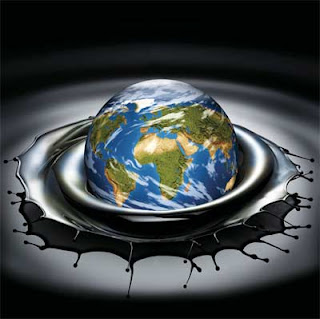When he wrote Climate Wars, military affairs oracle Gwynne Dyer accepted the Pentagon and Brit MoD take on global warming, namely that it meant war, an awful lot of war, throughout this century.
A couple of years later Dyer wrote another book in which he said he had it wrong. His gut instinct was that we'd somehow find our way out of the global warming death pit.
Now it seems Dyer has concluded he was probably right the first time as he explains in his latest column, Coasting toward Climate Change Disaster.
In the first phase of these [U.N. summit] talks, which concluded with the Kyoto
Protocol of 1997, the emphasis was on “mitigation”; that is, on stopping
the warming by cutting human emissions of carbon dioxide and other
“greenhouse gases”. That made good sense, but they didn’t get anywhere.
Fifteen years later, emissions are still rising, not falling.
So gradually the emphasis shifted to “adaptation”. If we can’t agree
on measures to stop the average global temperature from going up, can
we learn to live with it? What’s the plan for developing new crops to
withstand the droughts and high temperatures that are coming? What’s the
plan for coping with massive floods that drown river valleys and
inundate coastlines?
Well, there are no such plans in most places, so the emphasis has
shifted again, to compensation. Terrible things will happen to poor
countries, so who pays for them? In principle, says the new Loss and
Damage mechanism, the rich countries that are responsible for the
warming pay. But the “mechanism” has no method for assessing the damage
or allocating the blame, so it will become a lawyers’ playground of
little use to anybody else.
Besides, the rich countries are going to be fully committed
financially in just covering the cost of their own damages. Consider,
for example, the US$60 billion that President Barack Obama has just
requested from the U.S. Congress to deal with the devastation left by
Superstorm Sandy. In practice, there will be very little left to
compensate the poor countries for their disasters, even if the rich ones
have good intentions.
So if mitigation is a lost cause, and if adaptation will never keep
up with the speed at which the climate is going bad, and if compensation
is a nice idea whose time will never come, what is the next stage in
these climate talks? Prayer? Emigration to another planet? Mass suicide?
There will be a fourth stage to the negotiations, but first we will
have to wait until rising temperatures, falling food production and
catastrophic storms shake governments out of their present lethargy.
That probably won’t happen until quite late in the decade—and by then,
at the current rate of emissions, we will be well past the point at
which we could hold the rise in average global temperature down to two
degrees C (3.6 degrees F).
We will, in fact, be on course for three, four, or even five degrees
C of warming, because beyond plus two degrees, the warming that we have
already created will trigger “feedbacks”: natural sources of carbon
dioxide emissions like melting permafrost which we cannot shut off.
So then, when it’s too late, everybody will really want a deal, but
just cutting greenhouse gas emissions won’t be enough any more. We will
need some way to hold the temperature down while we deal with our
emissions problem, or else the temperature goes so high that mass
starvation sets in. The rule of thumb is that we lose 10 percent of
global food production for every rise in average global temperature of
one degree C.
Dyer concludes that probably, toward the end of this decade, we'll be immersed in the impacts of global warming sufficiently for world powers to dabble in geo-engineering which will probably lead to enormous conflicts and, finally, major war.
And, in Ottawa, the band played on.

No comments:
Post a Comment